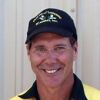I get asked quite frequently about how to train, what training drills should be done, and how to increase performance in specific areas. It seems that everybody is looking for things to add to the “toolbox.” Keep doing that and before long, you have a baggage car full of information that, while interesting, will not really help you improve your skills in an organized, structured way.
Knowing and understanding something and being able to do it at a high level are two separate things. Collecting information is easy. It is also passive. Processing and applying that information in an active way to increase performance is quite a bit harder. It requires effort on every level to be successful.
High performance is no accident — it is the result of focused effort, attention, practice, and commitment. Here are some guidelines for peak performance training that I share with my top-level students who want to be the best they can be.
1. Light the fire and feed it often. Make performance a priority. If you don’t have a burning passion for improvement, you probably don’t have enough fire. Surround yourself with others involved with the activity and immerse yourself in the world of performance you seek to attain.
2. Set goals and deadlines to keep you on task and on track. Write them down. Goals need to be short term, intermediate, and long term. This sounds simple but the reality is that most people fail to set goals correctly.
3. Test your current skill level or have someone you trust test you. Where are you now? Write it down. Retest frequently to measure performance increase.
4. Get busy training! Train as often as possible. While mental conditioning and visualization training are part of a balanced training program, maximum skill is derived from actually doing the movements, both dry fire and live fire. Growing the skill and myelination of the nerve pathways require actually doing the activities associated with the performance you are training on a very frequent basis. This is done on a long term basis if you want truly high performance you can count on.
5. Train at the proper level. I require a lot from my peak performance students. It is demanding, mentally fatiguing and requires the utmost attention. But, it brings the greatest results per hour spent.
6. Use a system or develop a system for yourself that you will use and then use it. Stop dragging the baggage car of information around. It’s just a bag of parts. Without a set of building plans, it is hard to incorporate them into a coherent system.
7. Being tested and critiqued is part of the process of validation. Self-validation in the safety of your home range doesn’t cut it. Seek out worthy challenges that are healthy and that give you a sense of comparison. These can be formal or informal.
8. Keep a positive mental attitude. Mistakes are part of the learning process. You will be working to correct them as you go.
9. Stay mindful, not thoughtful, as you train. If you cannot monitor and process what is happening as it is happening then you are in “Condition OWAC” (Operating Without A Clue). This can lead to mistakes being ingrained that become more difficult to correct over time.
10. Get a serious performance coach if you can. You can try to train on your own, but a mentor is invaluable. A good coach knows how to teach the skills at a very high level. Great performers are not necessarily good coaches, so shop carefully.
Following these guidelines is the best approach to achieve high performance. By following these guidelines, you will be on the right path. There will always be cynical grumblers with excuses for why they don’t train like they should. Stay positive, stay focused, stay committed, and stay the course. The journey is worth the effort!












